Misconceptions are very common in the world of infertility. One popular myth is that infertility is the woman’s problem and that once that “problem” is fixed; the couple will be able to conceive. This could not be farther from the truth.
Infertility is not just a woman’s problem. Although the estimates vary, approximately 15 percent of couples attempting their first pregnancy meet with failure. In fact, in nearly 30% of all infertility cases, the cause is attributed to a factor in the male and in an additional 30% of cases the cause is attributed to both male and female factors.
Male Factor and Anatomy
Bladder – is the muscular sac that stores the urine until it is released through the urethra.
Urethra – is the tube that carries semen and urine out of the penis.
Penis – is made up of two parts: the shaft (the main part) and glans (sometimes called as tip)
Testicle – The two testicles produce sperm and the male sex hormone “testosterone”.
Epididymis – next to each testicle the epididymis is a lightly coiled tube where sperms are stored. From here, sperms are transported to the vas deference.
Vas Deference – This thin muscular tube transports sperm from epididymis to urethra.
Seminal Vesicle – located at the base of the bladder, the two seminal vesicles secrete a thick fluid that nourishes the sperms.
Prostate Gland – This walnut sized gland surrounds a portion of the urethra and produces some of the fluids in the semen.
Scrotum – The scrotum contains the testicles and epididymis and hangs under the penis.
Male infertility is the inability of a man to successfully fertilize a woman’s egg. Male infertility can be caused by any number of factors, including low sperm motility, abnormal sperm shape, varicocele, and oligospermia (low sperm count). Find out about male factor infertility and treatment options, as well as how to locate a fertility specialist in your area.
The following is a list of risk factors related to male infertility (also called male factor or male factor infertility):
1.Cigarette or marijuana smoke
2.Heavy alcohol consumption
3.Exposure of the genitals to high temperatures
4.Hernia repair
5.Undescended testicles
6.Prescription drugs for ulcers or psoriasis
7.History of prostatis or genital infection
8.Testicular trauma or torsion
9.History of precocious puberty (puberty occurring at a young age) or delayed puberty (puberty occurring at an older age)
10.Exposure to toxic substances or hazards on the job, such as lead, cadmium, mercury, ethylene oxide, vinyl chloride,radioactivity, and x-rays.
Diagnostic Testing for Male Factor Infertility:
The evaluation of the male begins with a history, physical examination, and two semen analyses.
=====================================================================
The semen analysis and additional laboratory tests that are sometimes performed are discussed below.
1) Semen Analysis.
2) Optional Tests like Vital staining,Strict morphology determination,Peroxidase staining,Semen culture,Biochemical analysis of semen,Hormone evaluation,Post-coital/cervical mucus test.
3) Additional Optional Tests to evaluate sperm function include:
Sperm penetration assay (Hamster test) ,Human zona pellucida binding tests,Computer-assisted semen analysis (CASA)
The evaluation of the male can reveal details of abnormal Semen,Azoospermia,Germ-cell aplasia, Sertoli-cell Only Syndrome,SCO,Low semen production,Low Sperm Count,Oligospermia,Low Sperm Motility.
No semen test can fully predict the fertilizing ability of sperm because of the variability in other factors, including those in the female partner. Therefore, a complete infertility evaluation of the woman is also necessary.
Common Male Infertility Treatments: Treatment for male factor infertility:
Specific treatment for male factor infertility will be determined by your physician based on:
1. Your age, overall health, and medical history
2. Extent of the disease
3. Your tolerance for specific medications, procedures, or therapies
4. Expectations for the course of the disease
5. Your opinion or preference
There is a range of treatment options currently available for male factor infertility.
Several different kinds of male infertility solutions are available to either improve male fertility or circumvent the fertility problem. Dietary and lifestyle changes – such as taking more vitamins, minerals, and enzymes, and quitting any form of substance abuse – can generally improve male factor infertility related to low sperm count or sperm abnormalities.
However, there are also assisted reproductive technologies available to aid in conception, specifically artificial insemination and in vitro fertilization, IVF, GIFT, and other techniques, microinjection techniques such as intracytoplasmic sperm injection, or ICSI, drug therapy and surgery.
The majority of ART procedures now use in vitro fertilization with the woman’s own eggs, which are fertilized in a laboratory. The best candidates for IVF are women with damaged fallopian tubes and couples dealing with male factor infertility or unexplained infertility. In addition to ART, there are numerous male fertility drugs, fertility tests, and infertility treatments specifically for men.
Locate a Fertility Specialist:
If you think that male factor infertility may be affecting your chances of conception, contact a fertility clinic below. A male fertility specialist can help by running tests to diagnose potential infertility causes and provide assistance with male infertility solutions and treatment.
Contact a male factor infertility specialist today at:
Rotunda- Center for Human Reproduction
Phone:+91 22 2640 5000
Call us from UK on:44-2080997519
Call us from USA on:1-714-2740122

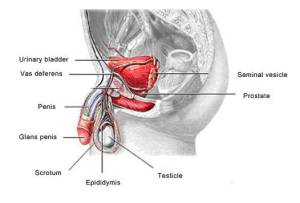

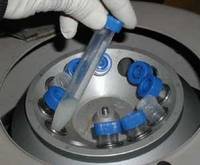
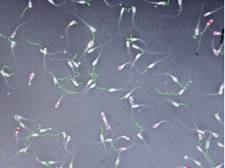
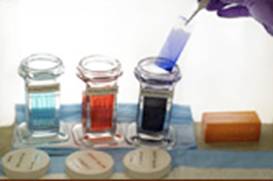
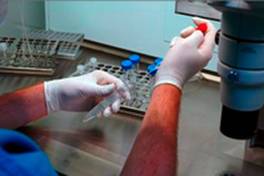
 Comments (
Comments ( Category (
Category ( Views (
Views (